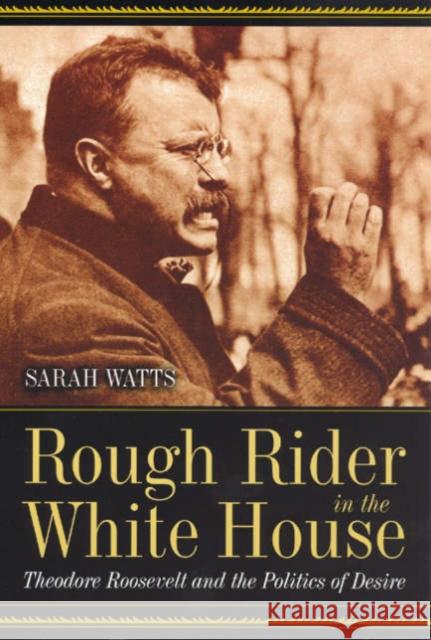Rough Rider in the White House: Theodore Roosevelt and the Politics of Desire » książka
Rough Rider in the White House: Theodore Roosevelt and the Politics of Desire
ISBN-13: 9780226876092 / Angielski / Miękka / 2006 / 299 str.
Who was Theodore Roosevelt? Most of us think of him as one of America's greatest presidents, a champion of progressive politics, and a master statesman. But many feared the political power that Roosevelt wielded. Woodrow Wilson once called him "the most dangerous man of the age." Mark Twain thought him "clearly insane." William James scorned the "flood of bellicose emotion" he let loose during his presidency. Even his biographer, Edmund Morris, is astonished at Roosevelt's "irrational love of battle."
In this book, Sarah Watts probes this dark side of the Rough Rider, presenting a fascinating psychological portrait of a man whose personal obsession with masculinity profoundly influenced the fate of a nation. Drawing on his own writings and on media representations of him, Watts attributes the wide appeal of Roosevelt's style of manhood to the way it addressed the hopes and anxieties of men of his time. Like many of his contemporaries, Roosevelt struggled with what it meant to be a man in the modern era. He saw two foes within himself: a fragile weakling and a primitive beast. The weakling he punished and toughened with rigorous, manly pursuits such as hunting, horseback riding, and war. The beast he unleashed through brutal criticism of homosexuals, immigrants, pacifists, and sissies anyone who might tarnish the nation's veneer of strength and vigor. With his unabashed paeans to violence and aggressive politics, Roosevelt ultimately offered American men a chance to project their longings and fears onto the nation and its policies. In this way he harnessed the primitive energy of men's desires to propel the march of American civilization over the bodies of anyone who might stand in its way.
Written with passion and precision, this powerful revisioning of an American icon will forever alter the way we see Theodore Roosevelt and his political legacy.
"A superb scholarly study of how Roosevelt built his political base on the aspiration and fears of men in a rapidly changing nation and world." Charles K. Piehl, "Library Journal"
"A thought-provoking and innovative study of the dark side of Roosevelt's personality. . . . Watt's] arguments are clear, passionate, and thoroughly supported." Elizabeth A. Bennion, "Journal of Interdisciplinary History"
"











